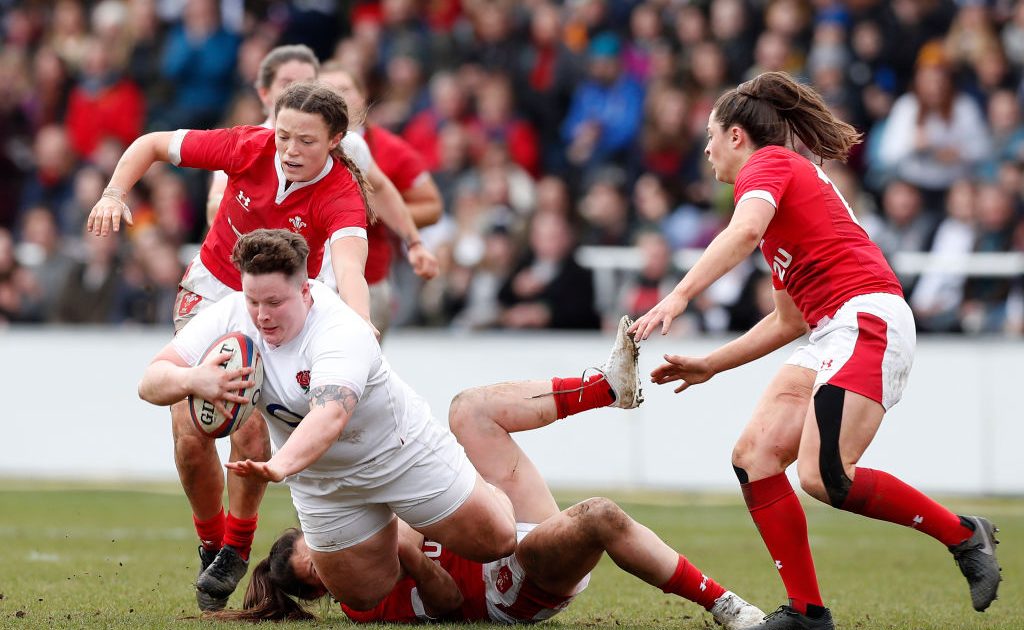Women's Lions: A roar of approval

Pulling on a Lions jersey has been one of the greatest honours in the men’s game since 1891. Sports marketing agency Two Circles were last week appointed to undertake a study on the feasibility of emulating this honour for a Women’s Lions Tour scheduled for 2026.
England Red Rose scrum-half Claudia MacDonald states that a Women’s Lions would represent ‘a huge opportunity for players to compete against each other for a shirt, and then play amongst and against the best’. It’s certainly a chance for the home nations to create a lasting legacy in the women’s game. MacDonald agrees, going on to say that a Women’s Lions Tour would ‘truly show how far we have come, from the women who first fought for club rugby and our national teams, our own World Cup, everything. Women’s rugby has written its own story, and a Women’s Lions would show respect for that story’.
If a 38 player Women’s Lions squad were selected this year, it would be a broadly English affair. This reflects limited resources available to players outside England rather than lack of talent. Domestic leagues of other home nations lag behind the Allianz Premier 15s, in which the majority of the teams boast a contingent of full-time athletes despite the limiting salary cap. Many Welsh players cross the border to play for Bristol, Gloucester and Exeter, exchanging quality game time for the fatigue of travel.
Wales’ recent announcement of twelve full time contracts is a solid start from a national perspective, but it will likely be several years before the benefits of fledgling professionalism appear on the pitch. Ireland currently have no centrally contracted XVs team members, whilst Scotland’s provision for contracted players is patchy at best, meaning athletes are working or studying alongside the demands of training. For a truly representative Lions, all home nations must be well on the way to full-time squads. This may be an area for the Lions to help with, either through direct funding or structural support.
Now we must consider the Lions opposition. Blindly following the men’s blueprint is not a recipe for compelling viewing. South Africa women currently languish in 13th place in world rankings with no substantial moves toward professionalism. A solution could be keeping the four-year cycle without fixed opposition – this would allow the Tour to grow organically and for the Women’s Lions to have the flexibility to choose the most competitive opposition.
The World Cup played in New Zealand later this year should indicate which nations may be up to the task of the inaugural Tour. The Black Ferns (ranked second in the world) suffered resounding defeat in their recent test series against the Red Roses culminating in a 56 – 15 loss at Franklins Gardens. It’s hard to imagine the fifth placed Wallaroos would fare much better, with captain Grace Hamilton suggesting ‘it may be tough down here to put a strong opposition out’. However, this may be a different story come 2026 – the Black Ferns have recently announced a full time paid squad, and it’s likely that the Wallaroos will follow suit.
Perhaps an interesting proposition is a combined Tour of Australia and New Zealand. This type of Tour would provide a bigger pool of high quality opposition from the top ends of both countries’ domestic leagues. A Southern Hemisphere Barbarians-style warm up match could also be a crowd pleaser. Hamilton notes that ‘a combined tour would be a great thing…I would hope that in the next four years Australia will support our women more to lift the standard’.
For future iterations, a combined USA/Canada tour would also make for interesting viewing – you need only look at USA captain Kate Zackary’s recent solo try and Alev Kelter’s performances in the league to know that the talent is there in the Eagles squad.
?? @kelteralev ??????? ??? ???? ?? ? ????????? ????? ?@SaracensWomen @USARugby #Premier15s pic.twitter.com/oqznPYzGDu
— Premiership Women's Rugby (@ThePWR) February 17, 2022
In terms of commercial practicality, opportunities for a Women’s Lions are considerable. Women’s sport achieved a record British audience of 33 million last year, with 600,000 viewers tuning in for the 2021 Six Nations clash between England and France. A documentary along the lines of Living With Lions could draw out the biggest personalities in the game, which would in turn drive sponsorship.
Research by the Women’s Sports Trust indicates that interest in female athletes is driving sport in general, led by player star-power. Giving players such as Shaunagh Brown and Meg Jones bigger platforms will in turn generate greater interest, following and therefore revenue.
Women’s rugby is experiencing exponential growth on and off the field. A well thought out Lions Tour could catapult the women’s game into the fully professional era and create an interminable legacy.



















































